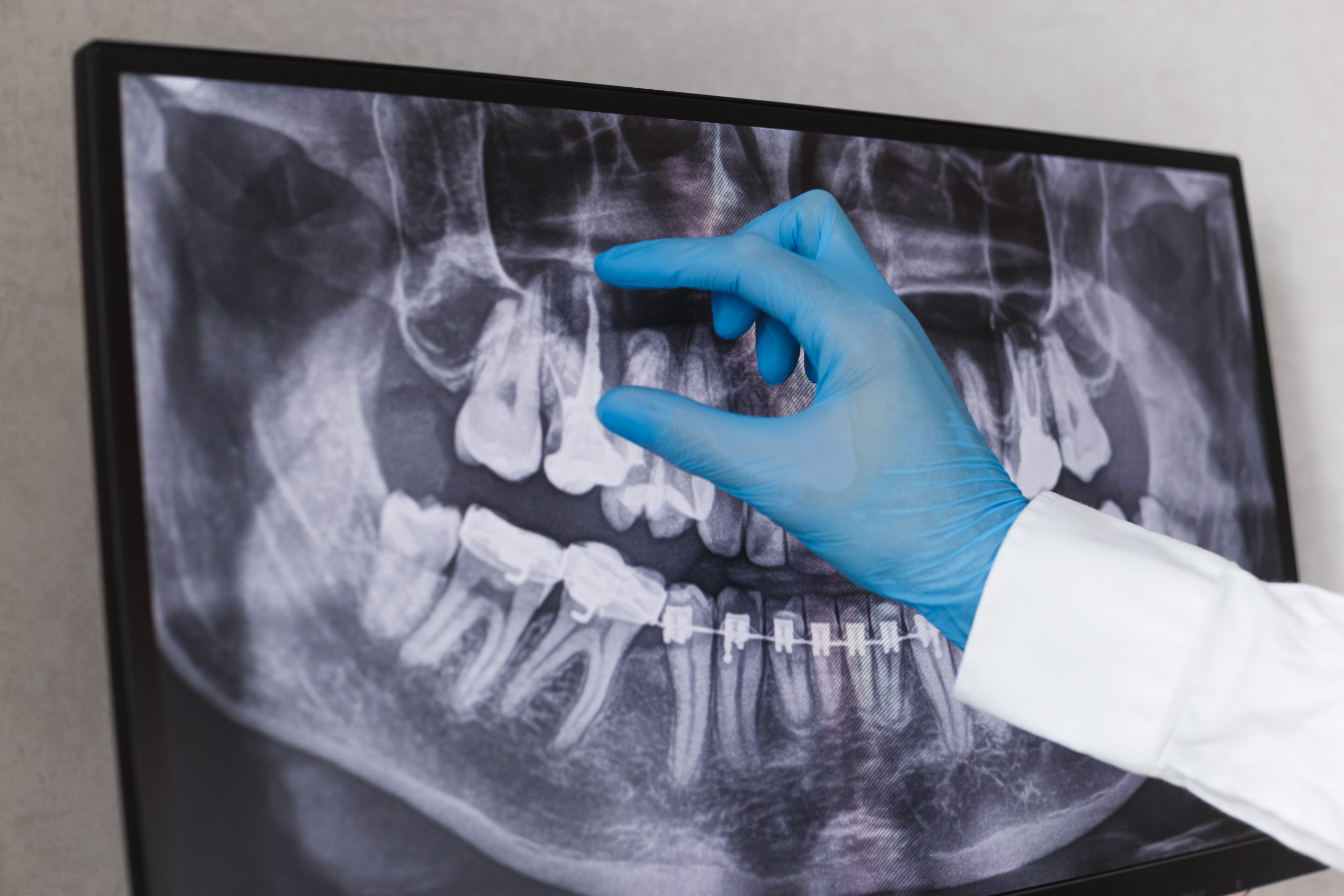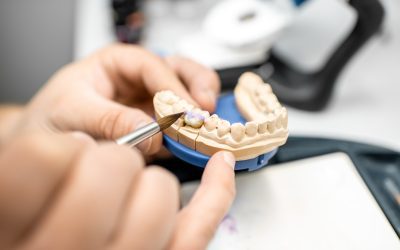Dentistry is a vast field with various professionals dedicated to maintaining and improving oral health. Among these professionals are dentists and endodontists, both playing a vital role in dental care. While their roles may seem similar at first glance, understanding the difference between a dentist and an endodontist comes down to the notable differences in their educational background, specializations, and the services they offer.
Understanding the Difference Between a Dentist and an Endodontist
Dentists primarily focus on the overall oral health of their patients, diagnosing and treating various dental issues. On the other hand, endodontists are dental specialists who, with additional training, explicitly focus on diagnosing and treating tooth pain and root canal therapy.
General Dentist
A general dentist helps patients maintain good overall oral health. They cover a wide range of dental procedures, from routine dental checkups and cleanings to filling cavities, tooth extractions and providing basic restorative treatments. General dentists have completed dental school but do not have the additional years of specialized training that endodontists have. Their primary goal is to promote good dental health while preventing dental issues from developing or worsening.
Some typical dental procedures performed by general dentists include:
-
- Dental examinations and cleanings
- X-rays
- Fillings
- Simple tooth extractions
- Gum disease treatments
Endodontist
While all endodontists are dentists, not all dentists are endodontists. These specialized dentists focus on diagnosing and treating dental pain and diseases that affect the innermost part of the tooth, called the dental pulp. Endodontists undergo additional years of training beyond dental school, which allows them to have a deeper understanding of complex dental procedures such as root canals.
Endodontists possess advanced diagnostic skills and equipment, like dental operating microscopes, enabling them to accurately identify and address tooth pain caused by problems within the dental pulp. They also have expertise in managing pain and ensuring patient comfort during complex procedures like root canal treatment and apicoectomy. Although their fees may be slightly higher than dentists, endodontists are often referred by dentists for cases that require specialization in the area of endodontics.
When it comes to dental care, collaboration between general dentists and endodontists may sometimes be necessary, especially if the patient is experiencing more complex dental problems requiring specialized treatment. In such cases, the general dentist often works closely with the endodontist to provide comprehensive dental care for the patient, ensuring that their oral health is maintained to the highest possible standard.

Educational Background
Training of an Endodontist
After completing dental school and earning a Doctor of Dental Surgery (DDS) degree, an endodontist must pursue an additional two to three years of advanced training in endodontics. This advanced training focuses on the diagnosis and treatment of dental pain, as well as root canal therapy and other endodontic procedures. During this time, endodontists also gain hands-on experience treating complex dental cases and learning how to use specialized tools and equipment, such as dental operating microscopes. This additional training and certification, beyond dental school, allows endodontists to become experts in this field.
Education for a General Dentist
A general dentist attends dental school and earns a DDS or DMD degree, which typically takes four years to complete. Dental school covers a wide range of topics, including general dentistry, oral health, and dental procedures. Unlike endodontists, general dentists do not need to undergo additional years of schooling and specialized training after dental school. However, many general dentists choose to participate in continuing education across their careers to stay current with the latest techniques and advancements within the field of dentistry.
While both endodontists and general dentists share the foundational dental school education, endodontists have advanced training, giving them specialized knowledge and experience. Therefore, endodontists can provide comprehensive care for patients who require root canal therapy or other endodontic treatments.
Services Offered
Endodontist Services
One of the main services of an endodontist is performing root canal treatments to save badly infected or damaged teeth. During a root canal, the endodontist removes the infected dental pulp, cleans and disinfects the affected tooth, and, in the end, fills and seals the tooth to prevent further infection.
Endodontists also handle more complex cases involving tooth pain and dental trauma, such as cracked teeth or damage to the tooth's root surfaces. They utilize advanced technology like dental operating microscopes to examine the root canals and ensure thorough treatment.
General Dental Services
General dentists, on the other hand, offer a wide range of services to maintain oral health and prevent dental issues. These services include:
-
- Cleanings: Regular teeth cleanings are essential to remove the buildup of plaque and stop tooth decay and gum disease.
- Disease prevention: Dentists assess the risk of developing oral health problems and provide guidance on maintaining good oral hygiene.
- Cavity treatment: Dentists detect and fill cavities to prevent further tooth decay and damage.
- Gum disease treatment: They treat gum disease in its various stages, from gingivitis to advanced periodontitis.
- Dental work: General dentists perform various dental work, such as dental crowns, bridges, and implants, to restore damaged or missing teeth.
While some general dentists may also perform root canal treatments, they typically handle less complex cases and may refer patients with complicated dental issues to an endodontist. Overall, both endodontists and general dentists play crucial roles in maintaining oral health and addressing dental problems, with endodontists specializing in more advanced and intricate cases.
Advanced Procedures
Endodontic Procedures
While general dentists can perform simple root canal treatments, more complex cases may require the expertise of an endodontic specialist. This is especially true if there are complications such as narrow root canals, blocked canals, or calcified canals.
In addition to standard root canal treatments, endodontic specialists may perform endodontic retreatment or endodontic surgery. Retreatment is necessary when a previous root canal treatment did not successfully resolve the issue. Endodontic surgery may be performed to clean the root tip or remove infected tissues surrounding the tooth. These advanced procedures often require the use of dental operating microscopes for better visibility and precision.
General Dental Procedures
General dentists provide a broad scope of dental care services, including preventive care, restorative treatments, and even some minor endodontic procedures. Some common general dental procedures include:
-
- Extractions: Removing a damaged or decayed tooth.
- Dental Implants: Replacing a lost tooth with an artificial tooth anchored to the jawbone.
- Crowns: Covering a damaged, decayed, or misshapen tooth with a custom-made cap.
- Fillings: Repairing a tooth damaged by decay with a restorative material such as composite resin, amalgam, or dental porcelain.
When dealing with dental issues, it is crucial to understand the difference between a dentist and an endodontist and consult both, as their combined expertise can help identify the best course of action for the patient. Proper endodontic care can save a tooth from extraction and preserve the patient's overall dental health. At times, an endodontist may place a temporary filling after a root canal treatment until the patient can visit their general dentist for the permanent crown placement.
Diagnostic Skills and Equipment
In the field of dentistry, both dentists and endodontists possess the necessary diagnostic skills to identify and treat a variety of dental issues. However, there are differences in the equipment and techniques used, as well as their areas of expertise.
Dentists are trained to diagnose general dental issues, such as tooth decay, gum disease, and oral health problems. They rely on the use of basic diagnostic tools like X-rays and dental examinations to identify issues and recommend appropriate treatments. In some cases, dentists may also utilize dental dams and other protective measures during treatments to ensure patient comfort and safety.
On the other hand, endodontists are specialists focusing on the diagnosis and treatment of more complex dental diseases, particularly those involving the dental pulp and root canals. Their diagnostic skills are honed by additional years of training, which allows them to better understand the intricacies of tooth anatomy, potential complications, and ways to effectively manage pain.
With regards to equipment, endodontists make use of advanced tools like surgical microscopes, which help them see inside the narrow root canals and provide more detailed visualization during procedures. Using these microscopes is crucial in ensuring the thorough treatment of affected areas and minimizing the risk of complications.
In addition to surgical microscopes, endodontists are also well-versed in advanced radiology techniques. They often use digital X-rays and 3D imaging to better visualize the tooth structure and surrounding tissues, which allows them to make more accurate diagnoses and develop appropriate treatment plans.
Moreover, endodontists are skilled in administering various anesthetic techniques to numb the treatment area effectively. Their understanding of pain management methodologies ensures that patients experience minimal discomfort during procedures, making the overall treatment experience more positive.
Pain Management and Patient Comfort
Endodontists specialize in treating issues involving the tooth's pulp and surrounding nerves. As a result, they are experts in pain management and prioritizing patient comfort during procedures. While skilled in various dental procedures, dentists may not have the same level of expertise when it comes to addressing complex root canal treatments and other related issues.
One distinguishing factor of endodontists is their advanced numbing techniques, which are vital for managing pain during treatments. These techniques help ensure that patients remain comfortable throughout the procedure. Endodontists are trained to effectively administer numbing medications, particularly for patients who have experienced difficulties getting and staying numb during dental procedures.
Endodontic treatments often involve addressing persistent tooth pain, sensitivity to hot or cold, and facial pain. These symptoms can be extreme and debilitating for patients, necessitating specialized treatment from endodontists to alleviate discomfort and restore oral health. Dentists may refer patients with such symptoms to endodontists for optimal care.
Another aspect of pain management and patient comfort provided by endodontists is the option of sedation. Sedation allows patients with anxiety or fear of dental procedures to be more relaxed and comfortable during treatment. This not only benefits the patient but also enables the endodontist to perform the procedure with increased precision and efficiency.

Fees and Referrals
When it comes to fees, there may be differences between a general dentist and an endodontist. A general dentist typically covers a wider range of oral health issues, often at lower fees compared to specialists like endodontists. The Survey of Dental Fees by the American Dental Association can help provide insight into the fees charged by dentists and endodontists for various dental procedures.
Endodontists are specialists who focus on performing root canals, making them more experienced and trained in this particular procedure compared to general dentists. In some cases, endodontists' specialized training and expertise allow them to charge higher fees than general dentists. However, patients may save time, discomfort, and potentially additional treatment costs by seeking an endodontist's expertise, which can provide convenience and long-term benefits.
Referrals play an essential role in maintaining a collaborative relationship between general dentists and endodontists. A general dentist might refer a patient to an endodontist when faced with a complex case requiring root canal treatment or retreatment. In this situation, it is essential for the referring dentist to have proper etiquette to ensure a smooth handoff to the specialist and the best possible outcome for the patient.
Effective communication between the dentist and the endodontist ensures that the specialist receives all relevant medical and dental history, along with any other pertinent information, to deliver appropriate care. This collaborative approach ensures that the patient enjoys the benefits of specialized treatment while retaining the familiarity and general care provided by their regular dentist.
Conclusion
In comparing an endodontist and a regular dentist, both professionals are crucial components in maintaining good oral health.
Dentists primarily focus on the overall oral health of their patients, diagnosing and treating various dental issues like tooth decay, gum disease, and more. They perform routine dental checkups, teeth cleaning, tooth extractions, and dental fillings.
On the other hand, endodontists are dental specialists who have completed additional years of training after dental school, specifically focusing on the diagnosis and treatment of tooth pain, as well as root canal therapy. They often handle more complex cases, completing an average of 25 root canals per week, while general dentists typically perform two.
Endodontists possess advanced diagnostic skills and equipment, enabling them to accurately identify and address tooth pain caused by problems within the dental pulp. They also have expertise in managing pain and ensuring patient comfort during complex procedures like root canal treatment and apicoectomy. Although their fees may be slightly higher than dentists, endodontists are often referred by dentists for cases that require specialization in the area of endodontics.
In summary, both endodontists and general dentists play essential roles in dental care, but their areas of expertise differ. It's important to understand the difference between a dentist and an endodontist in order to consult the appropriate professional, depending on the dental issue at hand. This helps to ensure the best possible care and treatment for your specific needs.
Frequently Asked Questions
What treatments do endodontists specialize in?
These specialized dentists focus on the diagnosis and treatment of tooth pain and problems involving the dental pulp and nerves within teeth. They primarily perform root canal procedures and other treatments related to the inner portions of a tooth.
Can a root canal be performed by a general dentist?
While it's rare, a general dentist can perform a root canal. However, in cases where the procedure is complex or requires specialized care, a dentist may refer a patient to an endodontist. Endodontists have additional training in handling such procedures and can offer expertise that may benefit the patient.
Why might a dentist refer a patient to an endodontist?
A dentist may refer a patient to an endodontist due to the complexity of the tooth problem, such as a curved or calcified root canal requiring specialized instruments or when a tooth may have persistent symptoms after a previous root canal treatment. Endodontists possess the advanced knowledge and skills necessary for providing specialized care in these situations.
What is the main difference between a dentist and an endodontist's training?
Both dentists and endodontists complete dental school, but endodontists go on to complete an additional two to three years of specialized training in endodontics. This extra education focuses on diagnosing and treating tooth pain and completing procedures related to the dental pulp and nerves inside teeth.
How do endodontist salary and dentist salary compare?
Endodontists, being specialists, typically have a higher salary than general dentists. This is due to their specific expertise and additional years of education. However, other factors could cause a variance in salaries, such as geographic location, years of experience, and practice setting.
Is there a difference between endodontists and periodontists?
Yes, endodontists and periodontists are both dental specialists, but they focus on different areas. While endodontists specialize in treating issues related to the dental pulp and nerves within teeth, periodontists specialize in identifying, treating, and preventing gum disease and other conditions affecting the supporting structures of the teeth.




